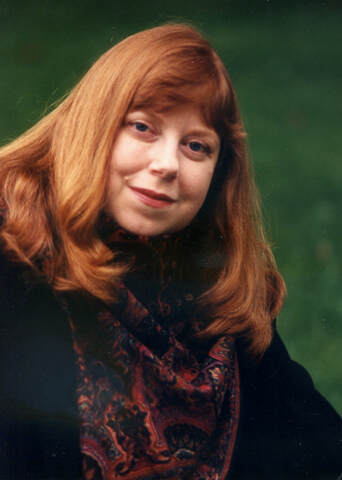 Today’s Featured Writefest Speaker is Kathryn Kulpa, the author of Girls on Film, a flash fiction collection, and Pleasant Drugs, a short story collection. She serves as flash fiction editor at Cleaver magazine and has been a visiting writer at Wheaton College. Her work appears in Smokelong Quarterly, 100 Word Story, Pidgeonholes, and many other journals and anthologies. What are some common traps aspiring writers fall into when seeking to get published? Speaking from my own experience as an eager teen writer trying to get published, I think two common problems are, first, trying to publish before you, or your work, is ready, and second, sending work out haphazardly without taking the time to research your market. For example, when I was 15, I wrote a story about a World War I pilot falling in love with a French woman--not that I knew anything more about World War I pilots than what I'd read in Snoopy and the Red Baron comics!--and sent it to the New Yorker, the Atlantic, and Ladies' Home Journal--because those were the only magazines I knew that published stories! I later worked as an editor for Merlyn's Pen, a magazine that published only teen writers, and that encouraged teens to write about their own lives and concerns. I wished I had known about it when I was that lonely, small-town 15-year-old trying to "be a writer" with no idea of what that even meant. But for new writers of any age, I think it's important to take some classes and/or find a helpful peer workshop group so you can get feedback on your work before you focus on trying to publish it. It's also vital to do your research magazines, literary journals, and book publishers before you submit to them to find out what kind of work they are publishing. What is the most important aspect of an author-editor relationship? As a writer who has published in many journals, I have benefited from some specific and insightful suggestions from editors that led me to revise a story and make it stronger. As an editor for an online journal, I try to give that same kind of directed, specific feedback. In other words, rather than saying "the ending doesn't work," a comment like "I think introducing a new character at the end is the wrong note; I'd rather see the focus return to the protagonist and her sister, to bring the story full circle" gives the writer something concrete to work with. Editors don't often have the time to make these kinds of suggestions, so when they do, know that your story made a deep impression on them. What has been your favorite project to work on? I enjoyed putting together the stories for my chapbook Girls on Film, because it gave me a chance to look at my work and see how similar themes worked themselves out in different stories. Want to hear more from Kathryn Kulpa at Writefest? Her schedule will be posted on our website soon, and she's also teaching our Flash Fiction workshop this year - spaces are going fast, so get your soon!
1 Comment
|
Archives
October 2023
Categories
All
|
-
About
- Our Organization
- Member Success Stories
-
People
>
- Staff
- Board of Directors
-
Faculty
>
- Nick Almeida
- Tanya Aydelott
- Nyri Bakkalian
- Andreana Binder
- Mackenzie Bitz
- Joyce Boatright
- KB Brookins
- Julia Brown
- Kartika Budhwar
- Debbie Burns
- Joe Burns
- Sean Morrisey Carroll
- Cynthia Childress
- Cassandra Rose Clarke
- Jessica Cole
- Mark Dostert
- Emily Foxhall
- Ynes Freeman
- Rosa Boshier González
- Mark Haber
- Matthew Hefti
- Sarah Gajkowski-Hill
- Adam Holt
- Melissa McEver Huckabay
- Angélique Jamail
- Justin Jannise
- Marlena Johns
- Amal Kassir
- Karleen Koen
- Mike Kowis, Esq.
- Kendra Preston Leonard
- Phuc Luu
- Lorenzo Martinez
- Elizabeth Mayorca
- Thomas H McNeely
- Jasminne Mendez
- Ülrika Moats
- Jody T. Morse
- Deborah D.E.E.P. Mouton
- Kinza Muzahir
- Patricia Flaherty Pagan
- Kate Pentecost
- Kathryn Peterson
- Joy Preble
- Brenda K. Preuss
- Paige Quiñones
- Scott Repass
- Icess Fernandez Rojas
- ire'ne lara silva
- Tamara Nicholl-Smith
- Courtney O'Banion Smith
- Rebecca Spears
- Patrick Stockwell
- Victoria Strange
- Marian Szczepanski
- Catherine Vance
- Juan Fernando Villagómez
- Holly Walrath
- Mathew Weitman
- Doni Wilson
- Charlotte Wyatt
- D.L. Young
- Theodora Ziolkowski
- Blog >
- Workshops
- Mentoring & Editing
- Events
- Writefest
- Get Involved
- Gift the Writer in Your Life
- Contact
Join our mailing list!
Become a member!
Writespace
1907 Sabine Street, Ste 125
Houston, TX 77007
-
About
- Our Organization
- Member Success Stories
-
People
>
- Staff
- Board of Directors
-
Faculty
>
- Nick Almeida
- Tanya Aydelott
- Nyri Bakkalian
- Andreana Binder
- Mackenzie Bitz
- Joyce Boatright
- KB Brookins
- Julia Brown
- Kartika Budhwar
- Debbie Burns
- Joe Burns
- Sean Morrisey Carroll
- Cynthia Childress
- Cassandra Rose Clarke
- Jessica Cole
- Mark Dostert
- Emily Foxhall
- Ynes Freeman
- Rosa Boshier González
- Mark Haber
- Matthew Hefti
- Sarah Gajkowski-Hill
- Adam Holt
- Melissa McEver Huckabay
- Angélique Jamail
- Justin Jannise
- Marlena Johns
- Amal Kassir
- Karleen Koen
- Mike Kowis, Esq.
- Kendra Preston Leonard
- Phuc Luu
- Lorenzo Martinez
- Elizabeth Mayorca
- Thomas H McNeely
- Jasminne Mendez
- Ülrika Moats
- Jody T. Morse
- Deborah D.E.E.P. Mouton
- Kinza Muzahir
- Patricia Flaherty Pagan
- Kate Pentecost
- Kathryn Peterson
- Joy Preble
- Brenda K. Preuss
- Paige Quiñones
- Scott Repass
- Icess Fernandez Rojas
- ire'ne lara silva
- Tamara Nicholl-Smith
- Courtney O'Banion Smith
- Rebecca Spears
- Patrick Stockwell
- Victoria Strange
- Marian Szczepanski
- Catherine Vance
- Juan Fernando Villagómez
- Holly Walrath
- Mathew Weitman
- Doni Wilson
- Charlotte Wyatt
- D.L. Young
- Theodora Ziolkowski
- Blog >
- Workshops
- Mentoring & Editing
- Events
- Writefest
- Get Involved
- Gift the Writer in Your Life
- Contact


 RSS Feed
RSS Feed